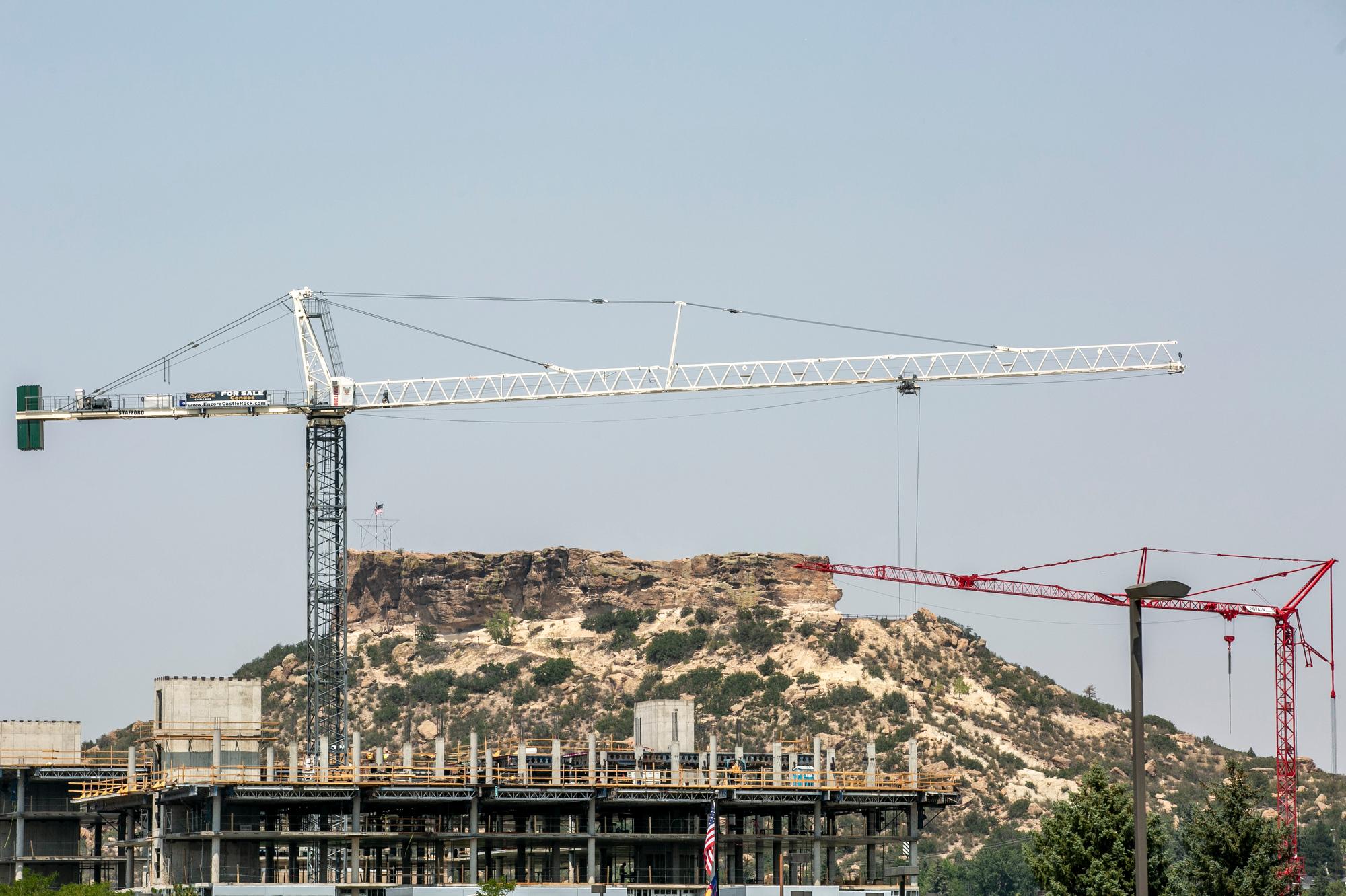
People who are homeless in Douglas County are being offered a new government service: Sheriff’s deputies will drive them to other counties and cities for a variety of reasons.
Sheriff Tony Spurlock says the goal is to help people get access to shelter and services that are not available in the wealthy suburbs and exurbs of the southern metropolitan area. His department’s new transportation policies, which launched this year, will also help people reconnect with friends and family in other cities.
Spurlock said the goal is to offer assistance to those who want it — not to just move people along from Douglas County.
“We are not going to take anybody and kick them out of the car and just let them go out into the world. We're going to provide them with the best possible resources that we can put together,” Spurlock said.
But the idea is drawing strong objections from neighboring government leaders who accuse Douglas County of off-loading unhoused people to avoid ramping up services of its own.
“I think this is dumping,” said Aurora Mayor Mike Coffman in an interview. “This is just dumping pure and simple, and I quite frankly think that ought to be illegal.
Denver Mayor Michael Hancock joined in the criticism after a recent conversation with Coffman.
“Mayor Hancock and Mayor Coffman are in agreement that the Douglas County sheriff’s office should not be driving people experiencing homelessness from their community into Aurora or Denver,” wrote Denver spokesperson Theresa Marchetta in an email.
The new policies have only been used a few times, but they are set to expand.
So far, this is mostly a hypothetical debate. The new transportation policies were only introduced a few months ago, and they’ve been used only a handful of times, Spurlock said.
About 15 people have taken the offer of transportation to other jurisdictions this year, according to Spurlock. All had been incarcerated at the jail in Castle Rock, and all had direct personal connections to the places they were taken, he said.
“They came down here and committed crimes. They got caught, served a sentence and now we're returning them to Denver where they lived before,” Spurlock said. “I don't understand the rub with that.”
But the county’s approach is also set to expand. A new homelessness response team will offer transportation and other services to people they encounter on the streets, not just those in jail, Spurlock said.
And the rides won’t be limited to people who have personal connections in other places. The sheriff’s office also will take people to shelters and other facilities in nearby cities, if they can secure a spot with those services, Spurlock said.
“Sometimes it's just easiest for us just to get them there, because, again, there's no public transportation in Castle Rock, so they're stranded, literally stranded,” the sheriff said.
“And if we do transport someone to Denver, maybe it's because a shelter has accepted them or maybe a nonprofit has agreed to take care of them,” he added.
But Abe Laydon, a Douglas County commissioner, said the idea of transporting people to services elsewhere wasn’t settled yet.
“That is not a decision that the board of commissioners has made, and that probably bears discussion with the commissioners and the homeless initiative,” Laydon said.
Leaders both in and outside of DougCo are pushing for the county's first permanent shelter.
Aurora Mayor Coffman said that instead of encouraging people to leave Douglas County, the county should “buck up” and work on creating its own services. Currently, the county of about 344,000 people has no full-time homeless shelters.
“I think they’ve gotta face up to the fact that things have changed in Douglas County,” he said.
In fact, Sheriff Spurlock and Commissioner Laydon have pushed to build Douglas County’s first permanent shelter.
“Compared to Denver and El Paso (County) we are really in an early stage — but that’s the whole point, let’s nip this in the bud,” Laydon said.
He has backed a plan to build a camp of temporary, moveable shelters. One of the main goals in building that shelter was to ensure the county can enforce laws against sleeping in public spaces. (Judges in several courts have ruled that governments cannot enforce camping bans unless they can offer somewhere else for people to stay.)
But the Douglas County commissioners have yet to authorize the shelter plan, which faced harsh criticism from some residents at a recent town hall.
Visible homelessness remains relatively rare in Douglas County, with an annual survey in 2000 identifying only 53 people, compared to more than 4,000 people in Denver and more than 400 in Aurora.
Laydon objected to criticism of the transportation program, saying that most people experiencing homelessness in Douglas County came from other areas, often by light rail. He cited statistics from government contacts with homeless people, as well as jail populations.
“There’s this odd narrative out there that somehow Douglas County is shipping their homeless to other jurisdictions and the truth is that if 75.6 percent of our incarcerated population comes from other counties, then we are housing other area’s homeless population in our jail,” he said.
Other communities also offer transportation services, but they are more limited than Douglas County’s plans.
In Arapahoe County, which includes much of Aurora, people leaving jail are offered transit fare, but not direct transportation to other cities.
The Aurora Day Resource Center also can help people get a bus ticket if they have an “established verifiable address,” but that only applies to places outside the metropolitan area, county officials said.
Commissioner Laydon said he is working with Aurora officials to address their concerns, including by bringing an Aurora representative aboard the county’s homeless initiative committee.








